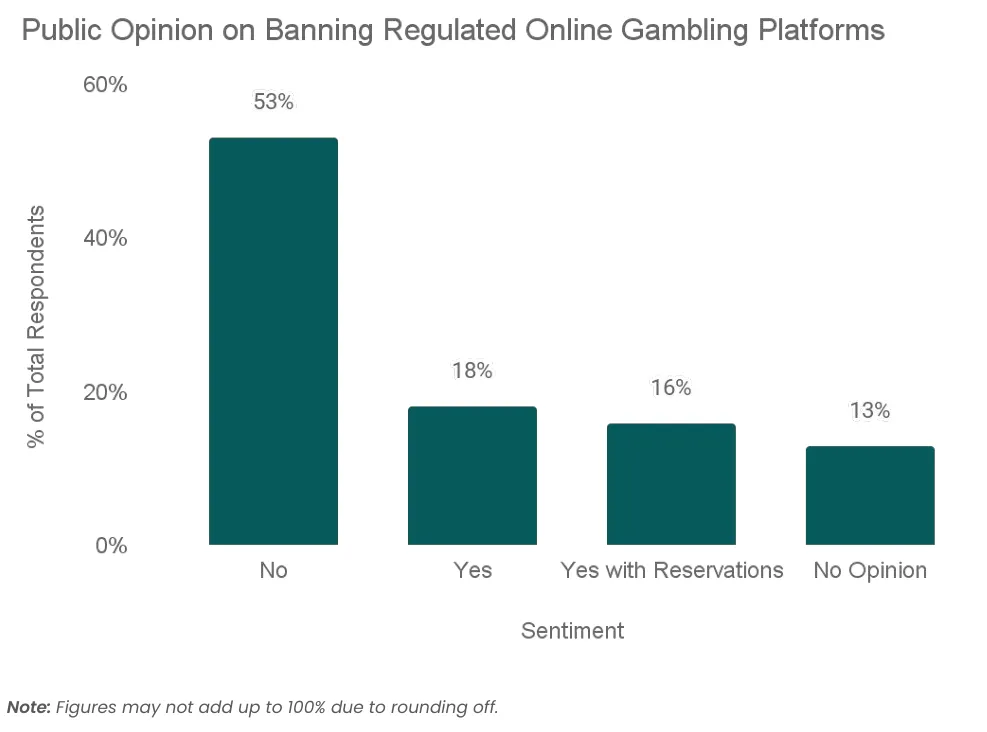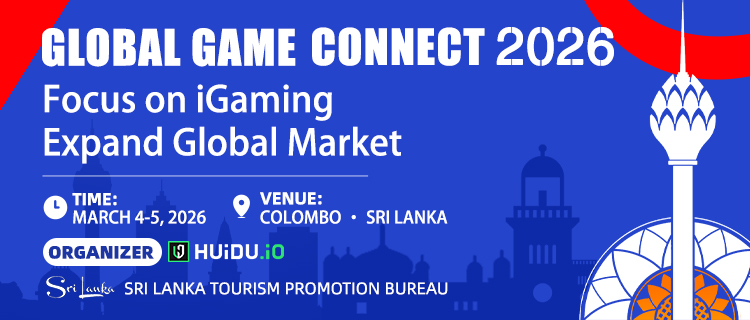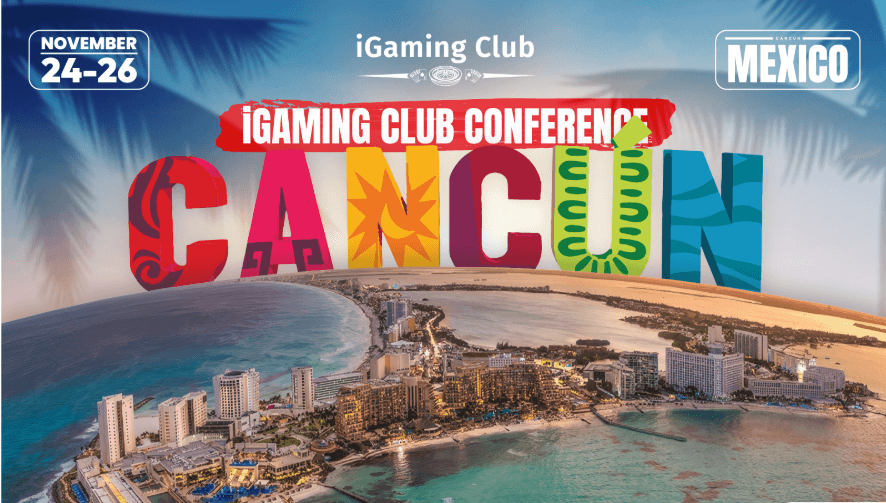The study, released on July 23, surveyed more than 1,000 online gamblers in Metro Manila, Metro Cebu, Metro Davao and other major cities. Its findings challenge the conventional wisdom that banning online gambling can reduce related harms.
John Brylle Bae, Director of Research at The Fourth Wall, said : “Our research shows that Filipino online gamblers prefer safer, regulated platforms. Players generally understand that a blanket ban will not stop online gambling, but will drive it underground, exacerbating risks such as fraud and addiction.”
Players call on gambling platforms to improve safety and legality
The core theme throughout the study was safety and legality. The results showed that players tended to choose " legal platforms to avoid scams ", which shows that users are trying to protect their own interests through autonomous choices, despite many complaints.
The most common complaints include " delayed withdrawals, lost funds, app login problems, betting errors, and program crashes ." The study pointed out that these problems exist even on regulated platforms, showing that the industry still has room for improvement, but also reflects the deeper motivations behind players - they are not only for entertainment, but also looking for a trustworthy platform.
The study also revealed the main reasons why people start to get involved in online gambling, including " curiosity, boredom and influence of friends ". Only 8% of respondents cited platform benefits (such as bonuses and convenience) as the main motivation. This shows that for most participants, gambling " is not a simple transaction behavior, but a social and leisure activity ."
Survey shows: Players support regulation rather than outright ban
“As online gaming in the Philippines continues to grow, we must push for a more data-backed and research-driven regulatory and policy dialogue.”
—John Brylle Bae, Research Director, The Fourth Wall
One of the key points of the study was to understand the respondents’ views on a total ban on online gambling . The results showed that 53% of the respondents were against a total ban on regulated platforms, while only 18% supported it, and another 16% agreed with the ban but had reservations.
“ For 75% of online gamblers, a ban would fail to stop gambling and instead force users to turn to illegal websites, social media gambling and unregulated overseas platforms ,” the report states.
Compared with a total ban, players would like the government to focus on cracking down on unregulated platforms, which is supported by 80% of respondents. The main reasons include " preventing fraud and curbing addictive behavior among teenagers and low-income groups ."
The study also categorized players by their behavior patterns. The largest group (36%) was " Break-even Optimists ," who " believe they can neither lose nor win, gamble moderately, and do not borrow money ." The riskiest 12% were classified as " Frequent High-risk Borrowing Gamblers ," who " borrow frequently, gamble frequently, and face greater financial risks ."
Despite these risks, the study found that 85% of respondents did not borrow money for gambling, indicating that most people still have a certain level of financial self-control.
E-wallets help foster responsible gambling
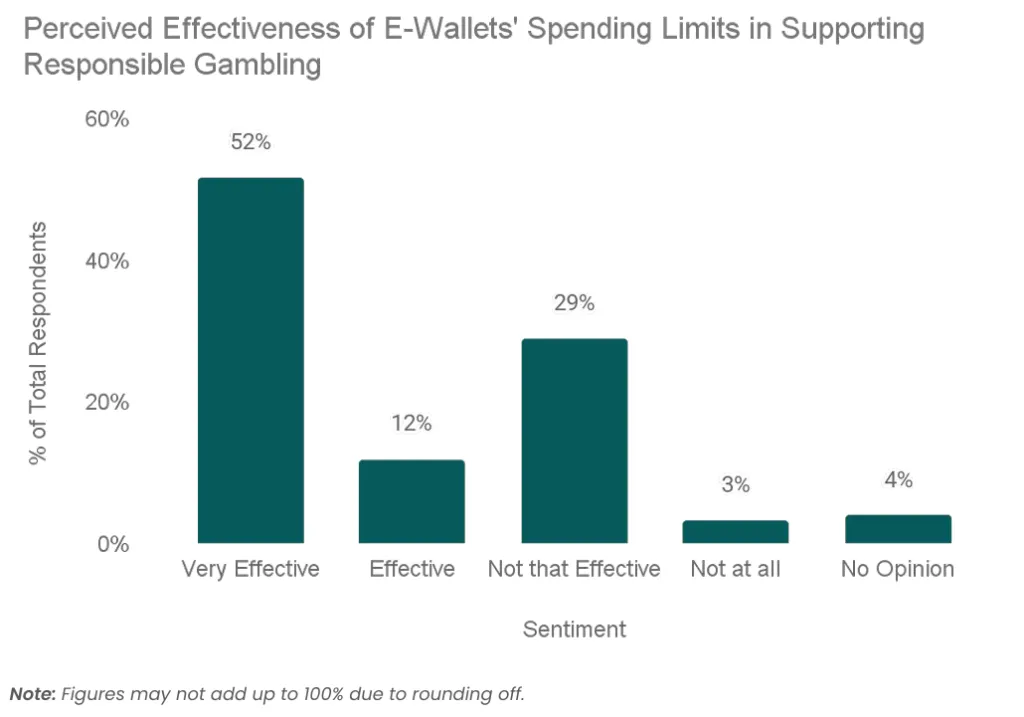
The study also examined the role of digital payment tools in gambling behavior. Currently, e-wallets are the mainstream payment method, with 92% of players preferring GCash, 6% using Maya, and only 2% paying over the counter.
Among users of GCash and Maya, 73% said they trust the age and identity verification mechanisms of these platforms, and 64% believe that e-wallets help them better manage their spending. This finding supports the view that technology can promote more responsible gambling behavior.
The report also traces the reasons for the surge in usage, arguing that " online gambling adoption has increased rapidly in the post-pandemic period from 2022 to 2024 " due to " lockdowns, digital migration, and increased advertising and social influence ."
In 2024, the Philippines' gaming industry's gross gaming revenue reached 410 billion pesos (about 6.14 billion euros), and is expected to reach 480 billion pesos (about 7.2 billion euros) in 2025.
Unregulated platforms and social media scams are on the rise
The findings come amid a surge in scams targeting unregulated gambling platforms, with online gambling-related scams up 76 per cent, mainly through social media, particularly Facebook, according to the latest data.
On Tuesday, Meta removed the Facebook pages of 20 influencers who promoted illegal gambling following a joint request from the Philippines’ Cybercrime Investigation Coordination Center (CICC) and advocacy group Digital Pinoys .
The growing threat further highlights that banning legitimate platforms could push users into more dangerous unregulated areas, the study said. Members of the Philippine Senate and House of Representatives also expressed similar concerns during recent discussions on the gambling ban.
Public trust in PAGCOR is divided; education and communication are needed
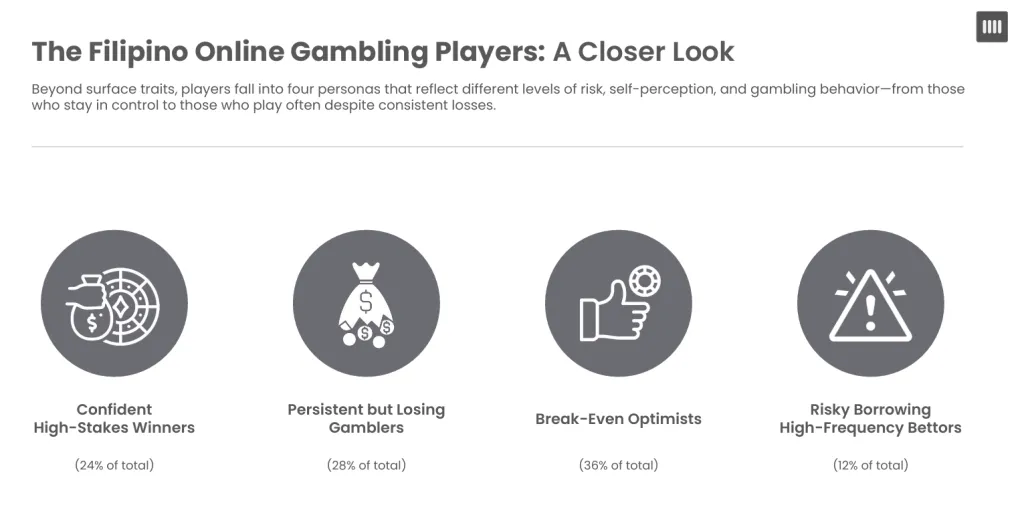
In terms of government regulation, 73% of respondents believe that the supervisory role of the Philippine Amusement and Gaming Corporation (PAGCOR) is crucial. However, only 61% believe that PAGCOR performs its duties effectively, while another 34% are unsure due to a lack of understanding of PAGCOR's actual responsibilities.
“ This finding suggests that, in addition to regulation, there is a need for greater public education and transparency from regulators ,” the report said.
This knowledge gap could affect public support for regulation. John Brylle Bae stressed: " The study is not for or against gambling, but it is intended to recognize the cultural reality of gambling and the responsibility of regulation, with the ultimate goal of protecting the public ."
“ As online gaming in the Philippines continues to grow, we must push for a more data-driven and research-based regulatory and policy dialogue ,” he concluded .



 2025-07-25
2025-07-25
